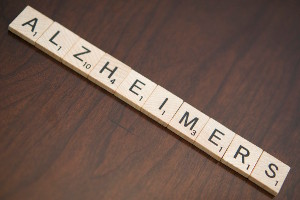The First Signs of Alzheimer's: Changes in Behavior

Debilitating and heartbreaking, Alzheimer's is estimated to affect as many as 5.1 million Americans. Sadly, many of these people live with early stages of the disease without even knowing it. To ensure that you or a loved one receives proper care, learn the most common Alzheimer's symptoms and find out how to differentiate them from signs of normal aging.
Early Stages
Usually lasting from two to four years, the early stages of Alzheimer's may produce the following symptoms:
- Less energy or drive
- Loss of interest in social activities and work
- Increased sleeping, sitting or watching television
- Forgetting recent conversations or recent memories
- Language problems or difficulty putting thoughts into words
- Trouble writing or mild coordination problems
- Difficulty with everyday tasks, such as balancing a checkbook or following recipes
Depression or mood swings - Getting lost while driving familiar routes
While these symptoms may point toward Alzheimer's, they can also have other causes, such as Parkinson's disease, drug abuse, thyroid problems, stress, depression and medication interactions. A doctor can help rule out potential causes.
Middle Stages
Usually lasting from two to ten years, the middle stages of Alzheimer's may produce the following symptoms:
- Forgetting key life details, like high school or weddings
- Forgetting where items have been left
- Failing to recognize friends or family
- Rambling speech patterns
- Inability to plan or solve problems
- Confusion about time
- Getting lost in familiar places
- Dressing inappropriately for the weather
- Quick to anger
- Inability to sleep
- Wandering
- Delusions
Late Stages
Usually lasting from one to three years, the late stages of Alzheimer's may produce the following symptoms:
- Major confusion differentiating the past from the present
- Inability to remember, process information or express oneself
- Difficulties swallowing and controlling bowels and bladder
- Skin infections, seizures, weight loss
- Extreme changes in mood
- Hallucinations
- Mobility problems
Is it Alzheimer's?
Nearly all of us experience mild memory problems as we age. Just because we forget where we left our keys or why we entered a room doesn't mean we have Alzheimer's. Usually, the disease presents itself by compromising a person's ability to handle day-to-day tasks, such as managing a checkbook, paying bills on time or using familiar tools and household appliances. If you or someone you love has exhibited these or other troubling symptoms, visit your doctor for an evaluation. While there's no cure for Alzheimer's, early intervention can improve symptoms and help prevent complications.





